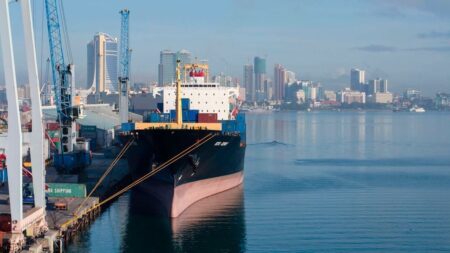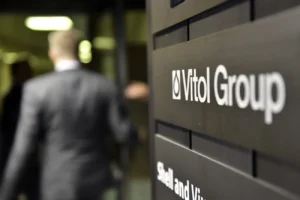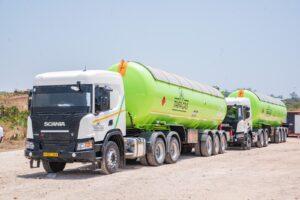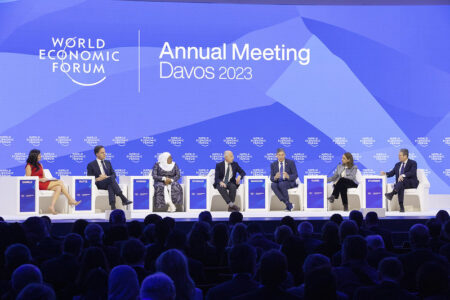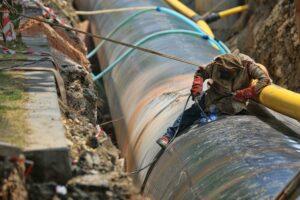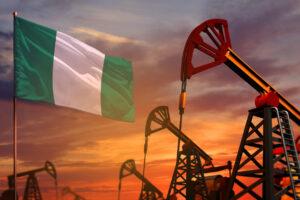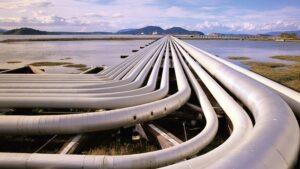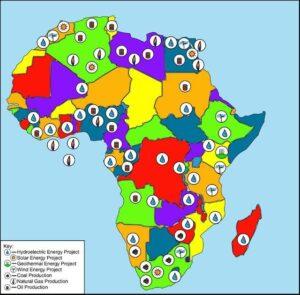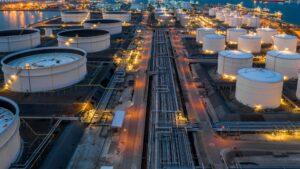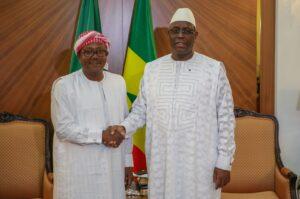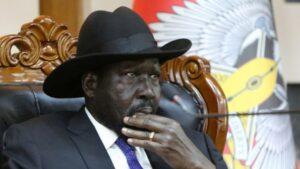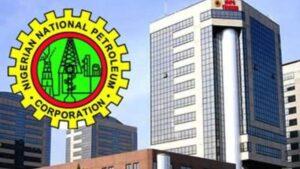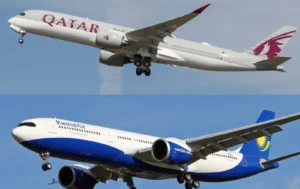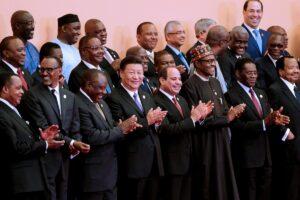- Africa’s new dawn: the rising role of digital and AI in agriculture
- Can Dangote Refinery Transform Africa Energy Ambition
- Gallup Survey: 80 per cent of Kenyan Workers Are Disengaged and Seek New Opportunities
- Madagascar Man Freed from 5KG Tumor After 15-Year Struggle
- How women in Africa are perceived and treated
- Sugar consumption in Kenya to Increase to 1.23 Million Tonnes
- Can Somalia and Turkey Oil deal Bring Change in Somaliland
- Remittances to Kenya dropped to $371.6 million in June, marking a six month low
Oil&Gas
- Tanzania has offered the Uganda National Oil Company (Unoc) to use the Dar es Salaam port for oil importation.
- This presents a strategic alternative amid the ongoing importation stalemate between Uganda and Kenya.
- The legal dispute between Uganda and Kenya over oil importation policies is pending before the East African Court of Justice (EACJ), with indications that Uganda may withdraw the case.
Tanzania has stepped forward with an enticing proposition that Kampala finds hard to ignore, especially regarding the ongoing deadlock in Nairobi-Kampala oil imports.
Tanzania has extended an offer to the Uganda National Oil Company (Unoc) to utilise the Dar es Salaam port for its fuel importation needs. This development comes as Uganda explores alternatives in response to Kenya’s steadfast position on Kampala’s oil importation demands.
Uganda’s grievance at the East African Court of Justice (EACJ) remains pending amid these unfolding events, casting a shadow of uncertainty over …
- The Uganda National Oil Company (UNOC) is directly importing petroleum products from Vitol Bahrain, aiming to reduce reliance on Kenyan firms and mitigate high fuel prices.
- UNOC’s direct importation and sale of fuel to OMCs in Tanzania and Uganda is a significant step towards fostering stronger regional ties, promoting economic growth, and ensuring energy security.
Uganda National Oil Company (UNOC) has started the sale of petroleum products to oil marketing companies in both Uganda and Tanzania.
This is part of a broader strategy to test the waters before UNOC embarks on a direct importation agreement with the global oil titan, Vitol Bahrain. This maneuver signals a new era in East Africa’s energy dynamics, especially following a cooling of relations between Uganda and Kenya over fuel supply mechanisms.
Breaking New Ground: Uganda National Oil Company Direct Importation Deal
For years, Uganda’s fuel supply chain was heavily dependent on Kenyan OMCs. However, …
- Taifa Gas broke ground at the Dondo Kundu Special Economic Zone next to the Port of Mombasa last Friday
- The firm supplies LPG for domestic, commercial and industrial use and has been feeding the Kenyan market by road.
- The company has been given 30 acres in Dongo Kundu to set up a 30,000 metric tonnes gas handling facility.
The entry of Taifa Gas into Kenya is expected to shake up the cooking gas retail market in East Africa’s economic power house, which has witnessed rising prices in recent years.
Taifa Gas broke ground at the Dongo Kundu Special Economic Zone next to the Port of Mombasa last Friday, at an event presided over by Kenya’s President William Ruto.
The company is investing about USD130 million (Ksh16.4 billion) in a Liquefied Petroleum Gas (LPG) import, storage and distribution plant, at the 3,000-acre Special Economic Zone. Taifa has been supplying LPG for …
Africa has been hailed as the next frontier in the provision of global oil and natural gas resources, especially now in the wake of the ongoing Russia-Ukraine war.
This crisis has not only altered the global energy landscape, but also instigated an inflation in gas prices, given the former’s position in the hierarchy of major global producers. As sanctions continue to soar, Europe has embarked on a quest to find contingency energy supplies, as it seeks to minimize its dependency on Russia; which has already cut off gas supplies to countries like Finland, Poland and Bulgaria, over energy payment disputes.
Consequently, Africa’s gas resources have gained a newly found prominence, pertinently by the European Union (EU); owing to the continent’s rich endowment of oil and deep gas reserves. The mounting global demand for gas, has been pushing international energy companies to reconsider African projects. The numerous ongoing and upcoming oil …
As Africa’s role in the global economy continues to garner prominence, it’s imperative for the continent to seal the gaping hole in its power supply.
Lack of universal power access remains a major roadblock that has retrogressed industrialization and socio-economic development. Statistics from the World Bank indicate that Africa remains the least electrified region in the world, with 568 million people lacking access to electricity.
The Bretton Woods institution, further notes that the Sub-Saharan Africa’s share of the global population without electricity, jumped to 77 per cent in 2020 from 71 per cent in 2018, whilst most regions saw declines in their share of access deficits. It has become a Hobson’s choice for African governments to prioritize the power sector, which is the epicenter of industrialization, working towards Goal 7 of the UN SDGs; which advocates for universal access to affordable, reliable and modern electricity services.
Currently, Africa’s power is …
There are still questions about Africa’s ability to serve as a viable interim option for natural gas while Europe confronts Russia’s military offensive. According to experts, a historical lack of investment in gas infrastructure has harmed Sub-Saharan Africa’s energy business compared to Northern Africa.
For example, Algeria’s Maghreb-Europe Gas Pipeline connects Algeria – Africa’s largest natural gas exporter – to Spain and Portugal via Morocco, and Algeria’s Medgaz pipeline connects Algeria directly to Spain. However, a decline in gas output caused the decline due to a breakdown in relations with Morocco; Algeria declared last October that it would immediately begin delivering gas straight to Spain.
It is critical to remember that [North] Africa already had a developed gas export market with Europe [pre-Ukrainian crisis]. The projected expansion of the Medgaz pipeline capacity [in Algeria] is to boost shipments to Europe.…
The report revealed that President Sissoco Embaló had single-handedly negotiated and signed the agreement in October 2020, which stated an uneven share of any future revenues from oil and gas exploration in the sea area located between the two countries.
Guinea Bissau’s prime minister, Nuno Nabiam, as well as the country’s parliament, did not have any hint about the deal. The O Democrata report must have triggered the government as it released the details of the agreement on December 14th.
Armando Lona, Editor of O Democrata, said that the agreement provided for the share of future oil and gas revenues between the countries, but the ratio was unfavorable to Guinea Bissau. Lona declared the agreement illegal, saying that the President had bypassed the public on an issue of national significance…
- More than $73 million USD was diverted since 2018
- Illicit diversion of State resources has severely undermined the economic rights of citizens
- Oil industry is also dominated by unaccountable oil consortia
Leaders of South Sudan are diverting staggering amounts of money and other wealth from the country’s public coffers and resources, undermining human rights and endangering security.
This is according to the Commission on Human Rights in South Sudan which has found in its latest Conference Room more than $73 million USD was diverted since 2018, including transactions worth almost $39 million USD in a period of less than two months.
The Commission noted that this figure is only a fraction of the overall amount looted.
For instance, President Salva Kiir himself admitted as far back as 2012 that South Sudan’s ruling elites had diverted more than $4 billion USD.
The report also found that illicit diversion of State resources …
The Nigerian National Petroleum Corporation (NNPC) has recorded an increase of 80.12% in trading surplus in a month. This increase was recorded between the month of December 2020 and November 2020 which stood at 63,532,499.89 USD and 35,272,487.54 USD surplus respectively.
According to the Group General Manager, Group Public Affairs Division of the Corporation, Dr. Kennie Obateru this increase was captured in the month of December 2020 edition of the NNPC Monthly Financial and Operations Report [MFOR]
The trading surplus figure is usually derived after deducting the expenditure profile from the revenue in the period under review. It is also known as the trading deficit.
The report also shows an increment of the operating revenue of the NNPC Group in December 2020 by 33.44% or 359,816.14USD as compared to November 2020 to stand at 1,435,718,936.08USD
Similarly, expenditure for the month increased by 27.54% or 296,283,642.51USD to stand at …





